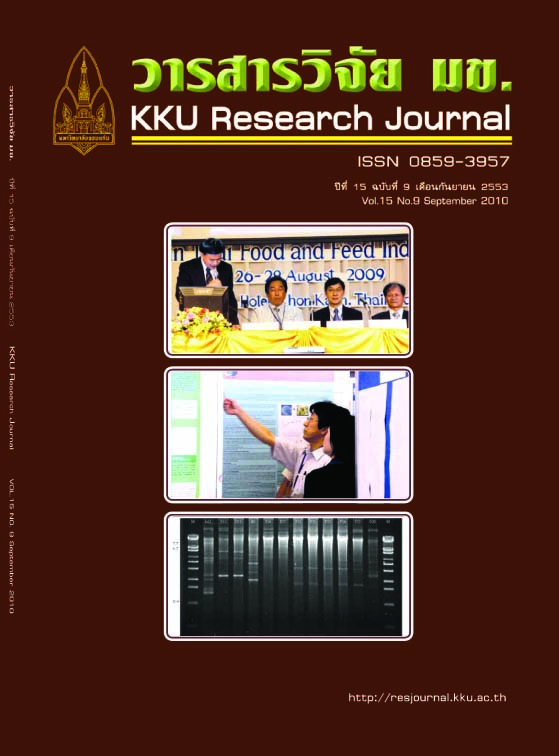Effects of mineral nutrients with biowaste compost as soil conditioner for farmland
Main Article Content
Abstract
Bio-waste, separately collected from municipal solid waste, can be reused as soil conditioner after composting. In this study, a series of field investigations was conducted on the essential minerals (Ca, Fe, Mg, Mn, Zn, Cu) and toxic heavy metals such as Pb, Cr, Cd contained in soil which have been amended with biowaste composts and/or amended with chemical fertilizer plus lower composts. The results show that the biowaste compost applications likely led to increase mineral elements in soils for Ca, Mg, Mn and Zn. It was also found that biowaste compost showed the tendency of the increases of bio-available forms of Fe, Mn and the reverse situation for Mg. Comparison of supply ratios (SR = bio-available content/total content×100%) of all elements in compost-amended and no amended soils showed that the leachability of Fe, Mn, Zn, Pb was slightly increased by biowaste compost application, and gave a less change for other elements.
Article Details
How to Cite
Imai, T., Li, B., Reungsang, A., & Kaewkannetra, P. (2017). Effects of mineral nutrients with biowaste compost as soil conditioner for farmland. Asia-Pacific Journal of Science and Technology, 15(9), 818–825. retrieved from https://so01.tci-thaijo.org/index.php/APST/article/view/84061
Section
Research Articles


